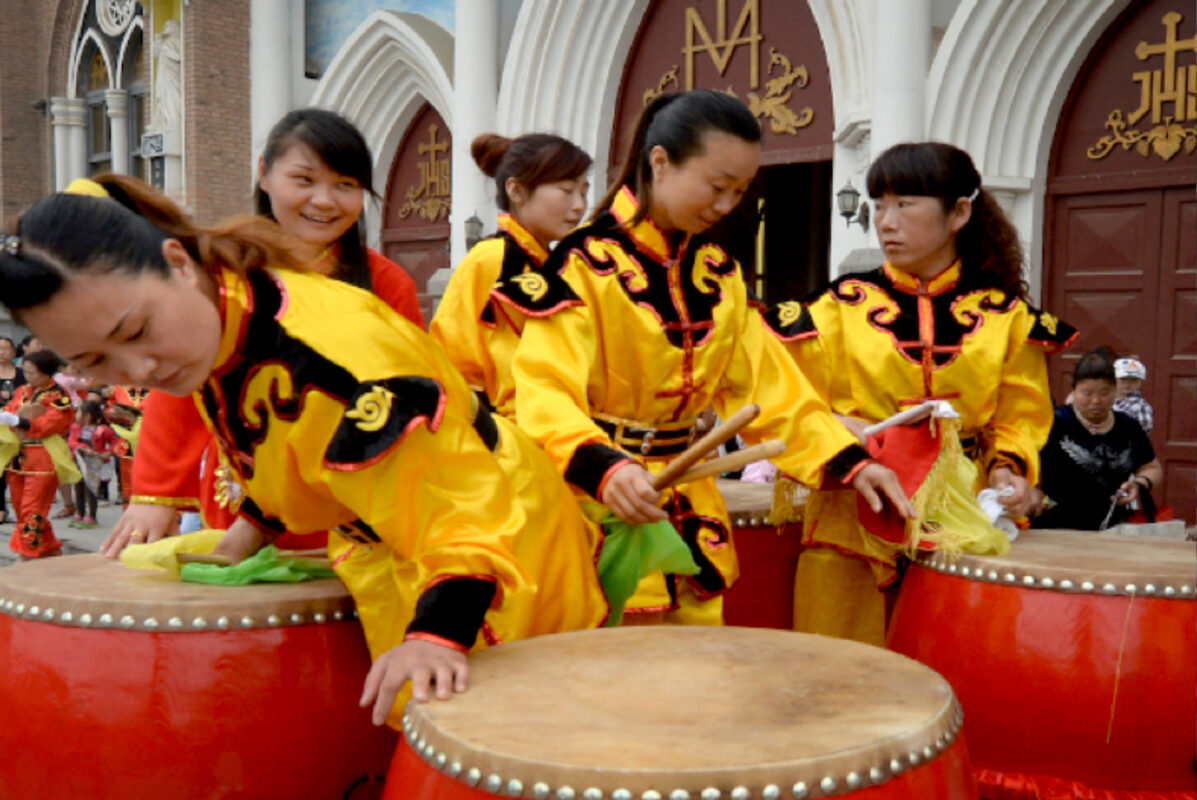CHINA
Chinese govt tightens control over religious activities
Church leaders in Hebei describe list of instructions as ‘incomprehensible’
ucanews.com reporter, Hong Kong
China
October 2, 2019

Catholics prepare for the start of a religious parade from the cathedral in Donglu, Hebei province, in May 2013. Catholics in the northern province are angry after being issued with stricter regulations. (Photo by Mark Ralston/AFP)
Officials in Hebei province in northern China have sent religious organizations a notice that from now on they will have to comply with new stricter regulations.
The chairman of one Catholic parish council told ucanews.com he considered the demand a serious violation of people’s rights.
The “Template for a Charter on Legal People in Religious Activity Venues” was released only recently.
The document says it intends to hold venues staging religious activities to the highest standards in accordance with the “General Provisions of the Civil Law of the People’s Republic of China”, the “Regulations of Religious Affairs” and the “Notice of State Administration of Religious Affairs and Ministry of Civil Affairs on the Issue of Applying for Legal Personnel at Religious Activity Venues.”
It requires all venues to formulate charters detailing their activities and include an extra section giving examples of actual situations.
The template sent to religious groups is highly detailed in its demands.
For examples, Article 13 instructs every venue’s administration committee to meet at least once a month, while Chapter 3 on property management requires accounting personnel to have professional qualifications above the primary level.
Demands are ‘unreasonable’
However, a Catholic in charge of a rural church in eastern Hebei said such demands were unrealistic for those staging religious activities in rural areas.
He said he found the latest demands “incomprehensible” and added: “Most Catholics in rural villages have a low level of education. There are no accounting personnel, nor any money to employ them. The religious affairs bureau has repeatedly asked us to employ accounting personnel but it is simply difficult for us to do so.
“We are all peasants. We do our farming and then we are go out to do other work too. We don’t have any extra time to establish a democratic administration committee, nor to have meetings once a month. These are not accomplishable for us.”
The template also stipulates that charters submitted by religious groups will only be considered active after they have been “approved by the local religious affairs department of the people’s government at the county level.”
One parish leader, Paul Wang, said his immediate reaction on receiving the new template was that it was unreasonable.
“This actually concerns the internal affairs of our Church,” he said. “Why should we go through a review by the religious affairs department? If we can’t manage our own affairs in our own venue, what religious freedom do we really have? Where have the rights and interests of our Church gone?”
An academic researcher named Joseph, a long-time observer of the circumstances facing the Church in China, said that by calling the new document a “Charter on Legal People in Religious Activity Venues” the government wanted to give the appearance it wanted to protect the interests of religious venues. After careful study, however, one could see many places where officials could manipulate it.
He cited Article 8, which spells out that one condition for being a member of the venue’s administration committee is that the person “supports the leadership of the [Communist] Party and the socialist system, and abides by the constitution, laws, regulations, rules and national policies.”
He added: “Nowadays, many laws and regulations introduced by the Chinese Communist Party are unconstitutional and various so-called policies are just for fulfilling its own interests. This is itself a serious violation of the law and an infringement of people’s rights.
“On the face of it, this relates to the establishment of a ‘democratic administration committee’ for a religious venue, but it actually enables the direct involvement and manipulation by the government in religious affairs under the pretense of democracy.”


 ENG
ENG